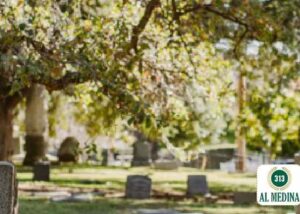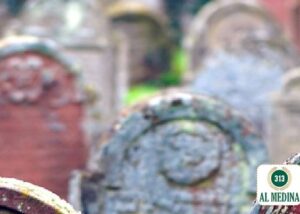Is the hadith of dead relatives seeing your deeds sahih? Is the hadith in Kitab al-Zuhad of ibn al-Mubaarak true?
Quran
Hadith
Islamic Text
بِسْمِ اللَّهِ الرَّحْمَنِ الرَّحِيمِ
In the Name of Allah Most Merciful Most Kind
Short Answer
The Hadith of the dead relatives seeing your deeds is classified as ‘Da’if’ (Weak). Therefore, it is not authentic (sahih).
Explanation
The Hadith that dead relatives see a person’s deeds has been narrated in the book mentioned above as the following:
أنا صَفْوَانُ بْنُ عَمْرٍو قَالَ: حَدَّثَنِي عَبْدُ اللَّهِ بْنُ جُبَيْرِ بْنِ نُفَيْرٍ، أَنَّ أَبَا الدَّرْدَاءِ، كَانَ يَقُولُ: «إِنَّ أَعْمَالَكُمْ تُعْرَضُ عَلَى مَوْتَاكُمْ، فَيُسَرُّونَ وَيُسَاءُونَ» قَالَ: يَقُولُ أَبُو الدَّرْدَاءِ: اللَّهُمَّ إِنِّي أَعُوذُ بِكَ مِنْ أَنْ أَعْمَلَ عَمَلًا يُخْزَى بِهِ عَبْدُ اللَّهِ بْنُ رَوَاحَةَ
I was informed by Safwaan bin Amr, who said that Abdullah bin Jubayr bin Nufayr informed me that Abu Dardaa used to say, ‘Indeed your actions are presented to your deceased (relatives), and they are either pleased or grieved.’ Abu Dardaa would say, ‘O Allah I seek refuge in you from an action that causes Abdullah ibn Rawaahah to feel embarrassed.’ (Kitab al-Zuhad, ibn al-Mubaarak).
However, I am not aware of any classical scholar who commented on its authenticity. Despite that, there is some discussion amongst contemporary scholars regarding its authenticity.
One famous contemporary scholar did say this Hadtih of dead relatives seeing a person’s deed is Sahih. However, others disagreed and they pointed out a fairly obvious weakness with the chain (Sanad). This is because they said there is a missing link (Inqitaa) between Abdullah bin Jubayr bin Nufayr and Abu Dardaa, therefore the Hadith is weak.
Classical Scholars
Usually the chains of narration have Abdullah bin Jubayr bin Nufayr narrating from Abu Dardaa through another narrator, often his own father. Which is why Imam al-Bayhaqi raised this issue in Shu’ab al-Imaan, saying him narrating without his father is not connected:
كَذَا وَجَدْتُهُ وَلَوْ كَانَ، عَنْ أَبِيهِ، عَنْ أَبِي ذَرٍّ، وَأَبِي الدَّرْدَاءِ، لَكَانَ مَوْصُولًا وَكَأَنَّهُ سَقَطَ مِنَ الْكِتَابِ
This is how I found the chain. However, if he had narrated from his father from Abu Dhar and Abu Dardaa then it would have been a connected chain. It may have dropped from the book.
A missing link in the chain (Inqitaa) renders a narration weak (Da’if).
The Hadith is also narrated by Ibn Abi Dunya but it has the same weakness in the chain. Elsewhere, in Kitab al-Zuhad (1126), it has him narrating from his father from Abu Dardaa. Therefore, this further supports the fact that there is a missing link in this particular narration.
In the books of biographies, he is not known to narrate from Sayidina Abu Dhar or Sayidina Abu Dardaa.
عبد الرحمن” بن جبير بن نفير الحضرمي أبو حميد ويقال أبو حمير الحمصي روى عن أبيه وأنس بن مالك وخالد بن معدان وكثير بن مرة وروى عن ثوبان والصحيح عن أبيه عن ثوبان
وعنه يحيى بن جابر الطائي ومعاوية بن صالح ويزيد بن حمير وثور بن يزيد وزهير بن سالم وصفوان بن عمرو ومحمد بن الوليد الزبيدي وإسماعيل بن عياش وجماعة
قال أبو زرعة وقال النسائي ثقة وقال أبو حاتم صالح الحديث وذكره ابن حبان في الثقات قال ابن سعد كان ثقة وبعض الناس يستنكر حديثه
ومات سنة ثماني عشرة ومائة في خلافة هشام
Abd al-Rahman bin Jubayr bin Nufayr al-Hadrami, Abu Hamid and it is said Abu Hamir al-Himsi. He narrated from, his father, Anas bin Malik, Khalid bin Ma’daan and Katheer bin Murrah. He narrated from Thowbaan, although the sounder opinion is that he narrated from his father from Thowbaan.
Yahya bin Jabir al-Ta’i, Muawiyah bin Saleh, Yazid bin Hamir, Thowr bin Yazid, Zuhair bin Salem, Safwan bin Amr, Muhammad ibn al-Walid al-Zubaidi, Ismail bin Ayyash, and others narrated from him.
Abu Zar’ah, and al-Nisa’i said he is a reliable (Thiqah) narrator.
Abu Hatim said, his narrations are good. Ibn Hibban mentioned in al-Thiqaat. Ibn Sa’d said he was a reliable narrator, although some rejected his Hadith.
He passed away 118 Hijri in the Khilaafah of Hishaam. (Ibn Hajr al-Asqalaani, Tadheeb al-Tadheeb).
And Allah Most High Knows Best.
–Answered by Shaykh Noorud-deen Rashid (04.01.21)






